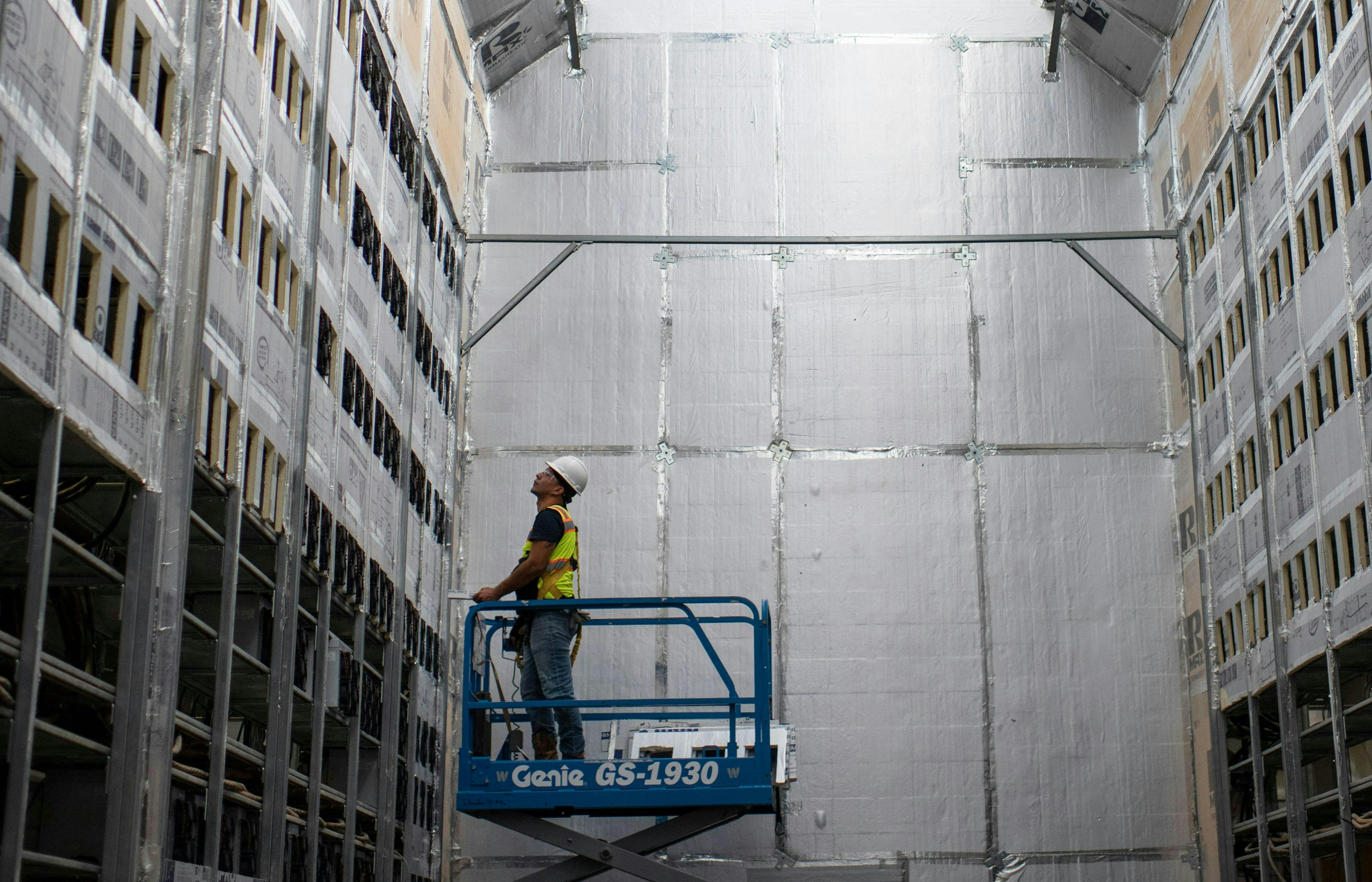The math behind the misery: How much bitcoin mines make while torturing neighbors
You own a loud, obnoxious money printer producing over $1 million a day. Could you turn it off?
Bitcoin has been dominating news cycles again following a record-setting price rally and former President Donald Trump’s move to latch onto crypto as a “wedge issue” in his presidential campaign.
But as traders debate price moves and politicians argue over the tech’s place in the economy, folks in small towns across the country are increasingly butting heads with the companies that keep bitcoin running behind the scenes.
It’s not going well.
Earlier this month, Time magazine published a piece focusing on one town’s struggles with a bitcoin-mining facility. The story, “‘We’re Living in a Nightmare,’” explains how residents of Granbury, Texas, believe that the local bitcoin mine is making them ill. Specifically, they pointed to the noise and spoke of bouts of vertigo, nausea, vomiting, and fainting.
The process of mining bitcoin, which involves specialized computers competing for the right to add the next block to the blockchain (and score a bitcoin reward), generates lots of heat. Fans work to dissipate that heat so that the complicated machinery doesn’t overheat.
Marathon Digital, the world’s largest bitcoin-mining company, owns and operates a mining facility near Granbury, which has over 12,000 people along the Brazos river. The location runs thousands of fans, which are so loud that Time compared them to a jet engine.
Marathon Digital said it’s working to replace the fans with a presumably quieter cooling system by the end of the year, using immersion containers to reduce the noise. Immersion cooling systems typically have higher upfront costs than air-cooled ones.
But as the company works to overhaul its facility, one thing it will likely be loath to do is spin its mining rigs down. That’s because large-scale mines like the one in Granbury generate substantial revenue for their owners. According to Marathon’s most recent quarterly report (the business is set to report second-quarter earnings on August 1), last month the company earned 590 bitcoin, coming out to 19.7 bitcoin a day.
With the price of bitcoin ranging between $55,000 and $71,000 in June, the machines have been essentially printing money — at that price range, Marathon is making $1.1 million to $1.4 million a day.
And though the April halving (a pre-programmed shift in bitcoin’s code) reduced miner revenues, it hasn’t slowed Marathon. The company said it “energized” 13,000 additional miners last month, bringing its total to 250,000 bitcoin miners.
Marathon isn’t the only bitcoin miner in the US. According to The New York Times, as of last year there were 34 large-scale bitcoin-mining operations in the country run by companies like Marathon, Riot Platforms, and Hut 8. In the first quarter, Riot said it had mined 1,364 bitcoin (about 15 bitcoin a day) with a gross margin of 52%. Hut 8 reported that it had mined 716 BTC in Q1, at a cost of $24,594 a coin. On March 31, the final day of Hut 8’s first quarter, one bitcoin could be sold on the open market for $71,333.
While the residents of Granbury may be living in a nightmare, it’s one they share with those living near similarly fan-cooled mining sites around America. Bitcoin-mining operations in Arkansas, North Carolina, and Ohio have all angered neighbors — some of whom have filed lawsuits — with fans that can spin 24 hours a day, 365 days a year.
“It was like torture,” Gladys Anderson, of Bono, Arkansas, told CBS News earlier this year. “Like a form of military-grade torture.”
Unfortunately for folks like Anderson, in many cases the law leaves them with few options. That’s because states including Montana, Mississippi, Oklahoma, and Arkansas have passed “right-to-mine” laws that in some instances allow miners to bypass local zoning rules.
Still, there are technical options — primarily the form of liquid cooling that Marathon said it’s investing in — that could eliminate many neighbors’ concerns. Other methods include building sound barriers and equipment that adjusts mining based on sound readings. Bitcoin Magazine called noise from bitcoin mining a “solved problem” two years ago.
But if taking your system offline for upgrades means losing out on a stream of crypto revenue, solved problems may tend to stay broken.
